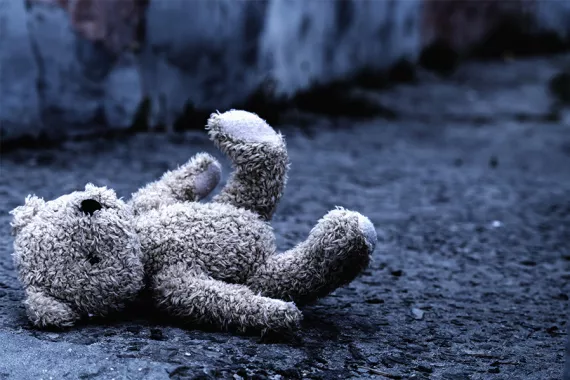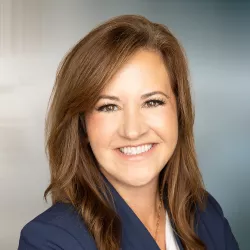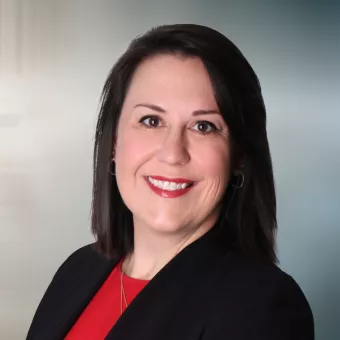
Case Overview
Childhood sexual abuse is a severe problem that affects approximately one in four girls and one in 13 boys worldwide. It has been connected with higher risks for negative physical and mental health outcomes. These include behavioral problems, obesity, psychiatric issues, self-harm, shorter lifespans, and substance abuse issues.
Key resources on childhood sexual abuse
- Rape, Abuse & Incest National Network (RAINN): America’s largest “anti-sexual violence” organization which created and manages the National Sexual Assault Telephone Hotline - 800.656.HOPE
- Adult Survivors of Child Abuse (ASCA): An international program for adult survivors of physical, sexual and/or emotional abuse or neglect
- National Child Traumatic Stress Network (NCTSN): A source of information about sexual abuse, along with care and treatment options
What are the long-term effects of childhood sexual abuse?
The effects of childhood sexual abuse may not be limited to the early years of a person’s life at the time they are initially abused. Research shows that abuse can lead to lifelong consequences across emotional, physical, cognitive, and social domains. These effects often include:
- Chronic mental health challenges
- Cognitive and physical changes in the brain
- Interpersonal and social difficulties
- Ongoing shame and isolation
- Physical health problems
- Substance use and coping behaviors
- Shorter lifespans
Research suggests that trauma from childhood sexual abuse is an intergenerational trauma that can be passed from a mother who was sexually abused as a child to that mother’s own children, who are at a higher risk of developing behavioral problems as infants.
How childhood sexual abuse affects the brain
Emerging neuroscience research shows that abuse in early life can physically alter the brain’s development in the following ways:
- Amygdala hyperactivity: Childhood sexual abuse of women frequently leads to posttraumatic stress disorder (PTSD). The amygdala is the part of the brain that regulates emotions. Amygdala hyperactivity is a condition where the amygdala responds too strongly to stimuli. This results in inappropriate fear and anxiety that can lead to panic attacks and difficulty controlling emotions.
- Executive function impairments: Being exposed to traumatic situations, including sexual abuse as a child, has been linked with modifications in the prefrontal cortex. The prefrontal cortex is the part of the brain that controls executive functions, which are critical for self-regulation and motor planning.
- Hippocampal volume reduction: Women and men with a history of severe childhood sexual abuse have been found to have a significantly smaller left hippocampal volume. People with a smaller hippocampal volume could be at greater risk for developing psychiatric disorders.
Mental health effects of childhood sexual abuse
Childhood sexual abuse can lead to a lifelong struggle with psychiatric disorders, which is sometimes compounded by social stigma or delayed diagnosis. Negative effects linked to such abuse include:
- Depression and anxiety: Research has found that survivors of childhood sexual abuse are more likely to encounter depression and anxiety as adults.
- Eating disorders and body image issues: Child sexual abuse is frequently associated with depression, which is often connected to obesity and eating disorders.
- Post-traumatic stress disorder (PTSD): Childhood sexual abuse can have long-lasting mental health effects, including PTSD.
- Self-harm and suicidal ideation: Studies have shown that those who experienced sexual abuse as children are at a greater risk of self-harm and suicidal thoughts, which can manifest in attempts to end their life.
- Sleep problems: Survivors of childhood sexual abuse often exhibit traumatic nightmares, insomnia, and other sleep dysfunctions.
Contact a sexual abuse litigation attorney today
Sexual abuse is a sensitive issue, which makes coming forward difficult for many survivors. If you choose to speak with one of our sexual abuse litigation attorneys, know that we will do everything we can to preserve your anonymity. If you have questions or would like to discuss a potential claim, contact our team by filling out our online form or call 1.800.768.4026.
Social and relational consequences of abuse
The interpersonal impact of childhood sexual abuse, even decades after the traumatic events occurred, cannot be understated. Some of the social and relational consequences of such abuse that may manifest in childhood and adulthood may include:
- Attachment issues: Survivors of childhood sexual abuse may have trust and attachment issues in their relationships with family members, relationship partners and friends.
- Difficulty forming or maintaining relationships: Individuals who’ve endured severe forms of child sexual abuse may have a decreased ability to maintain social relationships and receive vital support during their lifetime.
- Disruption in family dynamics: Parents who were abuse as children, including those who suffered sexual abuse, are more likely to mistreat or abuse their their children.
- Sexual dysfunction: Those who experience childhood sexual abuse commonly develop symptoms that cannot be explained medically. These symptoms may include reproductive issues, hypersexuality, risky sexual practices, or hypo/asexuality.
- Stigma and isolation: The shame and disgrace connected with childhood sexual abuse often make it difficult for survivors to talk about their experiences and ask for help. They can have difficulty forming healthy relationships, and they often feel isolated and disconnected from other people.
How legal action can help survivors
Many survivors of childhood sexual abuse have legal options — even if the abuse occurred many years ago.
- Civil claims: Injury cases can lead to compensation for medical bills, lost income, therapy, loss of enjoyment of life, and pain and suffering.
- Litigation: Legal action may uncover institutional failures that enabled or ignored abuse in schools, churches or youth organizations.
- Lookback window laws: Some states allow survivors to bring claims that extend beyond traditional deadlines.
Legal action can validate survivors’ experiences and offer a path toward closure and accountability.
Our sexual abuse litigation experience
Motley Rice represents victims in litigation filed under New York’s Child Victims Act alleging sexual abuse by clergy members that was suppressed by the Catholic Church. Our firm has represented survivors with similar claims against the Boy Scouts of America in New York, New Jersey and California.
Our attorneys represent childhood victims of sexual abuse, adults who were sexually abused as children, and other sexual assault victims. We know that predators, not the victims, deserve the blame. We believe that abusers and those who enabled them, including institutions, should be held accountable.
Key resources
What are the long-term effects of childhood sexual abuse?
How childhood sexual abuse affects the brain
Mental health effects of childhood sexual abuse
Social and relational consequences of abuse
How legal action can help survivors
Our sexual abuse litigation experience
- Sources
- Amédée L, Cyr C, Jean-Thorn A, Hébert M. Executive functioning in child victims of sexual abuse: A multi-informant comparative study. Child Abuse & Neglect. Volume 152, June 2024, 106737.
- Cleveland Clinic. Amygdala.
- Fine N, Helpman L, Armon D, Gurevitch G, Sheppes G, Seligman Z, Hendler T, Bloch M. Amygdala-related electroencephalogram neurofeedback as add-on therapy for treatment-resistant childhood sexual abuse posttraumatic stress disorder: feasibility study. Psychiatry and Clinical Neurosciences. Volume 78, Issue 1 p. 19-28.
- Hailes H, Yu R, Danese A, Fazel S. Long-term outcomes of childhood sexual abuse: an umbrella review. Lancet Psychiatry. 2019 Sep 10;6(10):830–839.
- Iacona L, Trentini C, Carola V. Psychobiological Consequences of Childhood Sexual Abuse: Current Knowledge and Clinical Implications. Frontiers in Neuroscience. Volume 15 - 2021.
- Choudhary E, Smith M, Bossarte RM. Depression, anxiety, and symptom profiles among female and male victims of sexual violence. Am J Mens Health. 2012 Jan;6(1):28–36. https://journals.sagepub.com/doi/pdf/10.1177/1557988311414045 ("Our results identified higher prevalence of depression and anxiety disorder among both males and females who experienced sexual violence victimization when compared with nonvictimized participants.")
- Vythilingam M, Heim C, Newport J, Miller A, Anderson E, Bronen R, Brummer M, Staib L, Vermetten E, Charney D, Nemeroff C, Bremner JD. Childhood Trauma Associated With Smaller Hippocampal Volume in Women With Major Depression. American Journal of Psychiatry. 2002 Dec;159(12):2072–2080.
- Zhang X, Ge T, Yin G, Cui R, Zhao G, Yang W. Stress-Induced Functional Alterations in Amygdala: Implications for Neuropsychiatric Diseases. Frontiers in Neuroscience. Volume 12 - 2018.
- Assink, M., Spruit, A., Schuts, M., Lindauer, R., van der Put, C.E., Stams, G.,The intergenerational transmission of child maltreatment: A three-level meta-analysis.Child Abuse & Neglect. 2018 Oct.;84:131-145.


